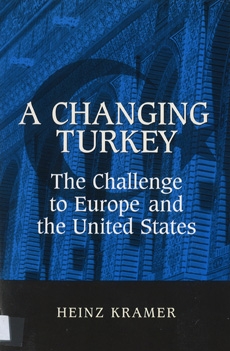
A Changing Turkey
Heinz Kramer
Brookings Institution
Situated at the crossroads of the Caucasus, the Balkans, and the Middle East, Turkey has long held a position of great strategic importance to the United States and Europe. Yet since the demise of the Soviet Union, significant changes have rocked the country, complicating domestic policy while providing new opportunities in the international arena.
Changing Turkey provides a detailed account of these changes and utheir impact on the country’s foreign policy outlook.
The first part of the book focuses on internal challenges that may prevent Turkey from fully exploiting its new foreign policy opportunities: uneasy relations with its Kurds, the advance of politicized Islam, and an unresponsive ruling elite. The second section focuses on the country’s new foreign and security policy environment, including geopolitical maneuverings over Caspian basin energy resources, the changing strategic pattern in the Middle East, and Turkey’s efforts to become a regional power in the Balkans. The. third part of the book analyzes the essence of American and European policies toward Turkey and proposes ideas for a more constructive management of these relations.
Turkey is poised to play an important role in the development of energy resources in the Caspian Sea region, the stability and the future of the Middle East, and the emerging European security architecture. A Changing Turkey counsels the United States and Europe to evaluate and reorient their relations with Turkey to better reflect the country’s evolving significance in the new international political order.
Heinz Kramer is a senior research analyst at Stiftung Wissenschaft und Politik in Berlin, Germany. | 